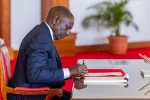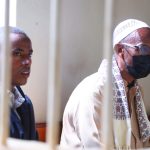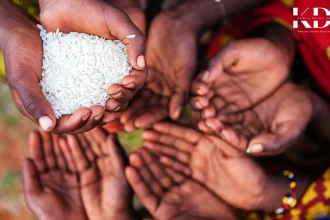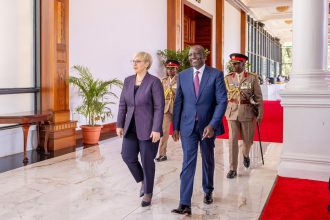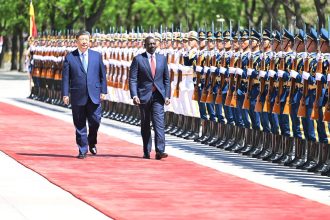The Kenyan government has ramped up diplomatic efforts to secure the release of activist Boniface Mwangi, whose whereabouts remain unknown following his alleged deportation from Tanzania.
Kenya is accusing Tanzania of ignoring multiple requests for information on the whereabouts of its citizen.
It has urged the Tanzania government to “expeditiously and without delay facilitate consular access to or release of Mwangi.”
The Ministry of Foreign and Diaspora Affairs issued a statement on Wednesday detailing ongoing engagements with Tanzanian authorities to resolve the escalating crisis, which has sparked outrage among Kenyan citizens and human rights advocates.
Mwangi, a vocal critic of political oppression, was arrested in Dar es Salaam on May 19 alongside Ugandan lawyer Agather Atuhaire while attending the court hearing of Tanzanian opposition leader Tundu Lissu, who faces treason charges.
The arrests came amid a broader crackdown on activists supporting Lissu’s CHADEMA party ahead of Tanzania’s October elections.
Tanzanian authorities claimed Mwangi and Atuhaire were deported, but their current location remains unclear, fueling speculation of foul play and possible collusion between Kenyan and Tanzanian officials.
In a letter to Tanzania, the Kenyan government, through the Ministry of Foreign Affairs, expressed “deep concern” over Mwangi’s situation.
The letter, addressed to Tanzanian counterparts, highlighted Kenya’s commitment to the safety of its citizens abroad and called for transparency in the handling of the case.
It noted that consular officers had been dispatched to Tanzania to ascertain Mwangi’s status, but access had been denied, raising alarm bells about potential violations of the East African Community (EAC) Treaty, specifically Article 104, which guarantees free movement and rights protection for member state citizens.
The controversy has also reignited debates over Kenya-Tanzania relations.
Tanzanian President Samia Suluhu Hassan accused Kenyan activists of meddling in her country’s affairs, a claim that has drawn sharp criticism from civil society.
Adding to the complexity, some Kenyans suspect their government’s complicity.
The crisis unfolds against a backdrop of strained regional dynamics.
Tanzania’s government has faced growing criticism for reverting to repressive tactics reminiscent of the late President John Magufuli’s era, despite Suluhu’s initial promises of political freedom when she took office in 2021.
Lissu’s trial, widely seen as politically motivated, has become a flashpoint, with CHADEMA demanding electoral reforms before participating in the upcoming polls.
As pressure mounts, Kenya’s Foreign Office has pledged to leverage its membership in the EAC and African Union to ensure Mwangi’s safe return. However, with public trust in the government waning, the situation remains a diplomatic tightrope.



